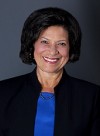by Marilyn M. Singleton, MD, JD
New York’s Catholic Democratic Governor had the World Trade Center in lights to celebrate its abortion-on-demand-until-the-day-of-birth law. This law was framed as empowering women through guaranteeing “Reproductive Health.” Women in New York must be really powerful since New York’s abortion rate is twice the national average. This and eight other similar state laws were largely ignored as merely codifying Roe v Wade.But the state of Virginia’s pediatrician governor’s ghoulish advocacy for abortion until delivery of the infant was jaw-dropping as he explained that killing the infant after birth was allowed.
How can we tolerate this moral regression? Infanticide was the norm throughout ancient Athens and Sparta where the elders inspected the newborns to ensure that only the strong survived, and the weak were left to die. Early Roman law decreed that deformed children would be put to death. Fortunately, by the 4th century, European law, religion, and medicine rejected the intentional killing of an infant.
Americans have been sucked in before by pretty words that mask the brutal reality of “evolved” policies. There was a time when America’s best and brightest were teaching Dr. Josef Mengele a thing or two about eugenics, the “science” of improving the human gene pool for the preservation of society.
At the First International Eugenics Congress in 1912, a Carnegie Institute-supported paper, Preliminary Report of the Committee of the Eugenic Section of the American Breeder’s Association to Study and to Report on the Best Practical Means for Cutting Off the Defective Germ-Plasm in the Human Population (“Breeder’s Report”), analyzed the problem of the “unfit” and the need to find solution to “cut[ting] off the supply of defectives.”
Even black intellectuals jumped on board. The Harvard-educated professor and civil rights activist W.E.B. DuBois believed only fit blacks should procreate to “eradicate the race’s heritage of moral iniquity.” The NAACP promoted eugenics theory by hosting “Better Baby” contests.
The Model Eugenical Sterilization Law (1914) was the blueprint for the sterilization of the “socially inadequate” including the feebleminded, insane, criminalistic, epileptic, inebriate, diseased, blind, deaf, deformed, dependent, orphans, ne’er-do-wells, tramps, the homeless, and paupers. By the 1920s, thirty-three states had compulsory sterilization laws.
Margaret Sanger, the founder of Planned Parenthood, advocated for mandatory IQ testing for the lower classes and the issuance of government-approved parenthood permits as a prerequisite to having children. Sanger criticized philanthropy as tending to perpetuate “human waste.” She also proposed that “the whole dysgenic population would have its choice of segregation or sterilization.”
Compulsory sterilization of the “feebleminded” was etched in stone by the revered liberal Supreme Court Justice Oliver Wendell Holmes. Buck v. Bell (which has never been overruled) concluded that “the principle that sustains compulsory vaccination is broad enough to cover cutting the Fallopian tubes.”
With Congress steamrolling exclusively government-controlled medical care with Medicare-for-All, we must reflect on our past as well as the present policies of our civilized neighbors. What happens when the government runs out of money to pay for everything our politicians promised?
The Model Sterilization law’s selling point was that sterilization of those maintained wholly or in part by public expense was cost-effective: segregation for life cost $25,000 and sterilization a mere $150.
In Belgium, a nine and an eleven-year-old were euthanized for conditions that we in the United States vigorously treat: cystic fibrosis and muscular dystrophy. Canada is considering allowing such barbarism-aka medical assistance in dying—to be perpetrated upon its children.
Iceland has virtually eliminated Down’s syndrome through abortion. Coincidentally the Ministry of Health lists Down’s syndrome as the most expensive disease for the state-funded health care program.
The British National Health Service’s Institute for Health and Care Excellence supports the use of “quality-adjusted life years” (QALY) to measure the quality and quantity of life added due to a particular medical treatment. If the cost per QALY gained exceeds a predetermined amount, the government denies payment for that treatment. ObamaCare architect Ezekiel Emanuel’s “Complete Lives System” prioritizes adolescents and persons with “instrumental value,” i.e., individuals with “future usefulness.” With current nursing home costs averaging $7,500 per month, hospice care could be the default medically necessary treatment for the disabled.
It was not too long ago that the top Democrat official, Nancy Pelosi said “[Republicans] pray in church on Sunday and they prey on people the rest of the week. And while we’re doing the Lord’s work, ministering to the needs of God’s creation, they are ignoring those needs which is to dishonor the God who made them.” I don’t know whose “lord” she is talking about—perhaps the overlords who aim to take over mankind in sci-fi stories or the “Lord of the Flies.”
The day erecting a barrier to stop drug and human trafficking is considered immoral and killing viable live babies is celebrated is the day some Americans tossed morality into the abyss.
 Dr. Marilyn M. Singleton, MD, JD is a board-certified anesthesiologist and member of the Association of American Physicians and Surgeons (AAPS).
Dr. Marilyn M. Singleton, MD, JD is a board-certified anesthesiologist and member of the Association of American Physicians and Surgeons (AAPS).
Dr. Marilyn Singleton ran for Congress in California’s 13th District in 2012, fighting to give its 700,000 citizens the right to control their own lives.
Despite being told, “they don’t take Negroes at Stanford”, she graduated from Stanford and earned her MD at UCSF Medical School.
Dr. Marilyn Singleton then completed two years of surgery residency at UCSF, followed by an anesthesia residency at Harvard’s Beth Israel Hospital.
Dr. Marilyn Singleton was first an instructor, then Assistant Professor of Anesthesiology and Critical Care Medicine at Johns Hopkins Hospital in Baltimore, Maryland before she returned to private practice in California.
While still working in the operating room, Dr. Marilyn Singleton attended UC Berkeley Law School, focusing on constitutional law and administrative law. She also interned at the National Health Law Program and has practiced both insurance and health law.
Dr. Marilyn Singleton has taught specialized classes dealing with issues such as the recognition of elder abuse and constitutional law for non-lawyers. She also speaks out about her concerns with Obamacare, the apology law and death panels.
Dr. Marilyn Singleton has conducted make-shift medical clinics in two rural villages in El Salvador.
Congressional candidate Dr. Marilyn Singleton presented her views on challenging the political elite to physicians at the Association of American Physicians and Surgeons annual meeting in 2012. (Audio version of the speech to AAPS doctors by Dr. Marilyn Singleton.)
Follow Dr. Marilyn Singleton on Twitter @MSingletonMDJD




 Dr. Marilyn M. Singleton, MD
Dr. Marilyn M. Singleton, MD




